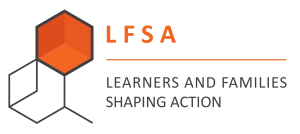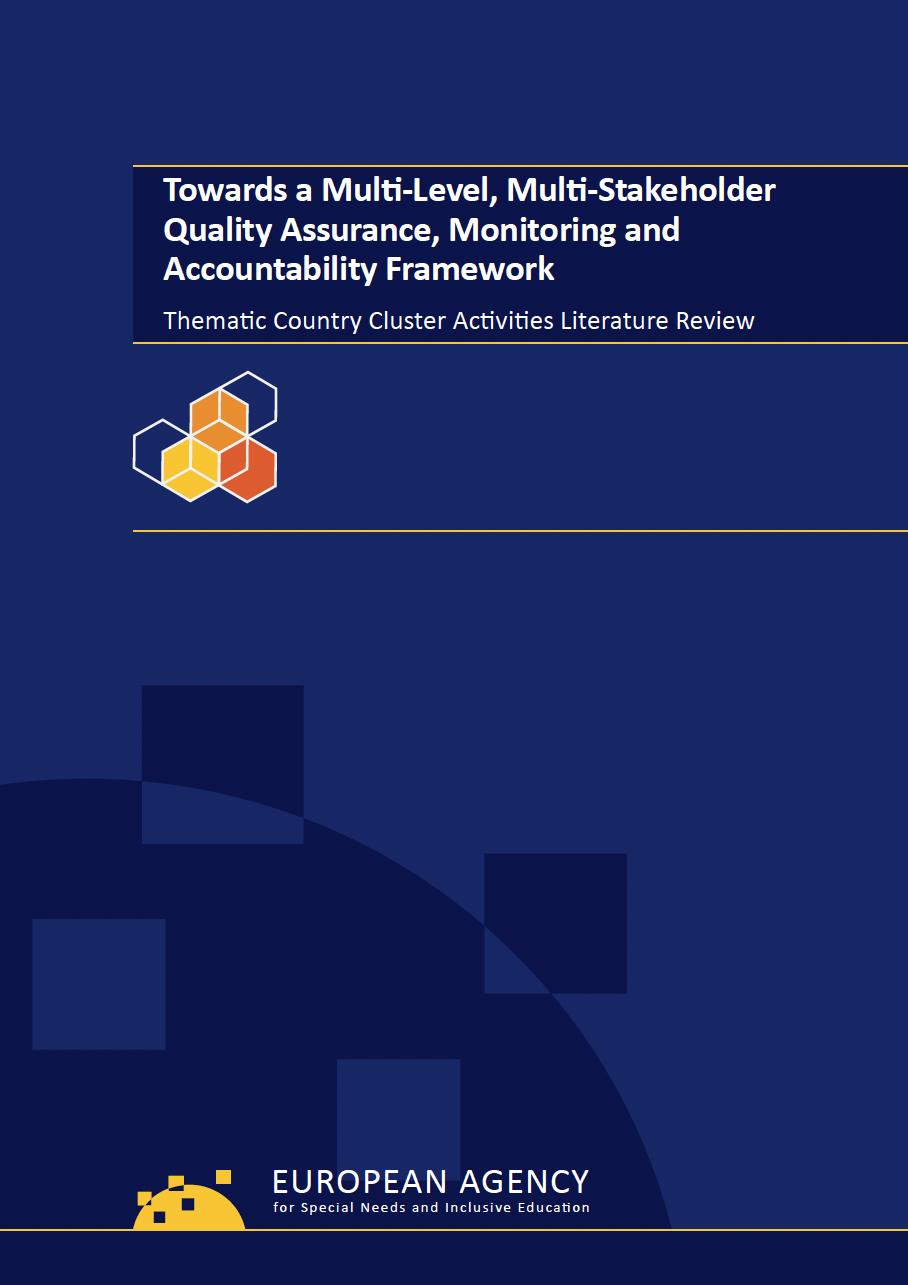The Learners and Families Shaping Action (LFSA) activity focuses on the role of the voices of learners and their families in monitoring and evaluation (M&E) frameworks for inclusive education. It examines how systematically incorporating information from learners and their families can enhance M&E processes, drive systemic improvements and inform policy development in inclusive education.
This activity is one of six within EASNIE’s Thematic Country Cluster Activities (TCCA). Each activity involves collaboration between a small group, or cluster, of EASNIE member countries. LFSA is Cluster 3. TCCA focuses on member countries’ priorities and addresses country requests for more tailored activities to support policy development needs and build upon learning points from other EASNIE activities. The clusters aim to support countries in their efforts to promote continuous improvement for all stakeholders across the whole inclusive education system. For more information, visit the TCCA web area.
LFSA involves small-scale, targeted, cluster-based work with countries with shared challenges and approaches. It uses peer-learning activities to facilitate detailed discussion, exchange and reflection among policy-makers, experts and various stakeholders.
Activity framework
The 2024 literature review Towards a Multi-Level, Multi-Stakeholder Quality Assurance, Monitoring and Accountability Framework is the foundation for planning and preparing the first TCCA cycle (2023–2025). It discusses recent findings from international and academic literature related to the three TCCA priority areas, which are inter-connected and inter-dependent.
LFSA focuses on the priority area of monitoring and evaluation. It aims to support countries in systematising and developing effective processes for learners and families to participate, in co-operation with relevant institutions and stakeholders, in all matters affecting learners. Policy-makers should adopt a top-down policy approach, supported by bottom-up initiatives at the local and school level.
Learners can identify physical or social barriers to inclusion in the school environment, so their voices are crucial in inclusive education policy discussions. Similarly, learners’ families are essential partners in creating inclusive classrooms. Families possess deep knowledge about their children’s strengths, needs and preferred learning styles. Additionally, families can be powerful advocates for inclusive education, working alongside educators and policy-makers to dismantle systemic barriers and give all learners access to quality learning opportunities.
Participants and target group
The LFSA cluster countries are Bulgaria, Cyprus, France, Latvia, Slovakia and Switzerland.
The target group includes policy-makers from EASNIE member countries, as well as learners, families and relevant stakeholders from the school community. Stakeholder consultations during the LFSA activity will involve focus group discussions, study visits and other exchanges. Policy-makers actively participate in co-developing the LFSA activity and in peer-learning activities with other relevant stakeholders.
Aims
LFSA’s overall goal is to examine the role of the voices of learners and their families in M&E frameworks. This complements and supports the work of the other two TCCA clusters focusing on M&E – Learner Participation in Inclusive Education and Monitoring and Evaluation Systems in Inclusive Education Policy – which address meaningful learner participation, and diversity and equity issues.
The key questions that LFSA seeks to answer are:
- How are the voices of learners and their families reflected in countries’ legislation and policy M&E frameworks?
- How are learners and their families informed about and involved in M&E processes?
- How do countries collect and use information from learners and their families in M&E activities?
- How can the voices of learners and their families be more effectively incorporated into M&E frameworks and processes to improve legislation, policy and practice?
Activities and outputs
LFSA activities will include the following:
- Online and in-person working group meetings to exchange knowledge, experience and practice among representatives from the LFSA cluster countries.
- Peer-learning activities and study visits involving stakeholders from different levels. These aim to facilitate in-depth discussion, exchange and reflection among policy-makers.
- Dissemination activities, such as webinars and a closing event.
The activities will lead to outputs that promote the effective use of the voices of learners and their families in M&E processes. The outputs will aim to improve M&E at the legislative and policy level.
Planned outputs include:
- a reflection tool to assist countries in developing a partnership model between schools and families, and in monitoring and evaluating families’ involvement;
- a common action plan/guidance of universal measures that each country can customise to its national context, which could include guiding principles, policy priorities and recommendations for including the voices of learners and their families in M&E framework and processes;
- an infographic conveying key strategies for including the voices of learners and their families.


